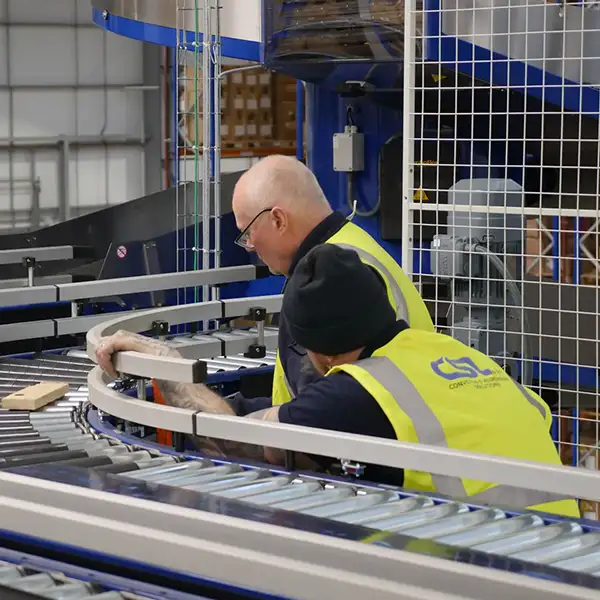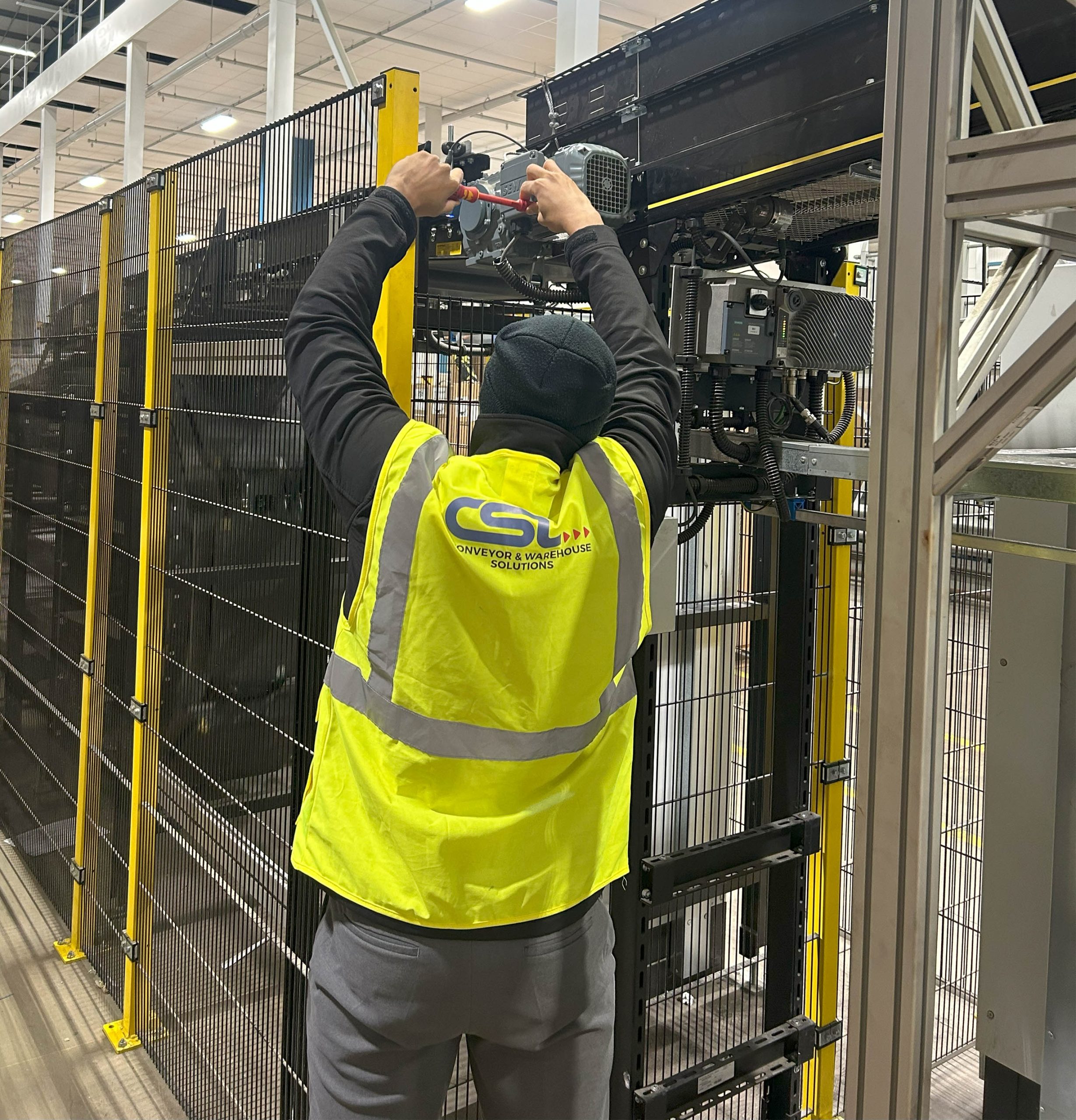Many technology-driven world, organisations rely heavily on automation systems to streamline operations, improve efficiency, and reduce costs. Which is great as these systems have become the backbone of many industries, from manufacturing to logistics, retail, and beyond. As these systems play an integral role in ensuring smooth operations, their failure can have a profound impact on a business’s productivity and bottom line.
A key component of safeguarding automation systems is having a robust service contract in place. However, some organisations may hesitate to commit to such contracts due to perceived costs or lack of understanding of their long-term benefits. This blog explores why justifying a service contract is essential, particularly in light of the risks and potential costs of system downtime.

The risks of not having a service contract
- Unplanned downtime
Unscheduled downtime due to system failure can cripple an organisation’s productivity. When automation systems go offline, the consequences can be severe, leading to production delays, missed deadlines, and revenue loss. Without a service contract, businesses may find themselves waiting for technicians to become available or dealing with repair bills that can escalate quickly.
- Unpredictable repair costs
While it may seem like a service contract is an additional cost, not having one can result in far greater expenses when things go wrong. Emergency repairs can be expensive, especially if parts need to be ordered.
- Lack of preventive maintenance
A service contract often includes preventive maintenance, such as system diagnostics, routine inspections, and updates. Without a contract, the responsibility for maintaining the equipment falls solely on the organisation. This can lead to missed opportunities to prevent minor issues from becoming major problems, ultimately shortening the lifespan of the automation systems and resulting in higher repair or replacement costs.
- Inconsistent service quality
When a company does not have a service contract in place, they are often forced to call on third-party providers or technicians who may not be familiar with their systems or have the necessary expertise. This can lead to inconsistent service quality and longer resolution times.
- Regulatory non-compliance
Certain industries may be subject to regulatory standards requiring systems to be maintained to a specific level of performance. Without a service contract, it may be more challenging to meet these requirements, potentially resulting in fines or legal issues.
The benefits of having a service contract
- Reduced risk of downtime
One of the primary reasons to justify a service contract is to minimize the risk of downtime. These contracts can include provisions for fast response times and guaranteed support, ensuring that technicians are on-site or available remotely when needed most. This leads to faster resolutions of issues, allowing business operations to continue with minimal interruptions.
- Predictable costs
A service contract offers predictable costs, which makes budgeting for maintenance and repairs easier. Instead of having to deal with unexpected repair bills, a service contract provides a fixed cost structure, allowing organisations to plan for maintenance and support with certainty. Many contracts offer tiered levels of coverage, allowing businesses to select the plan that best suits their needs and budget.
- Access to expert support
Service contracts often include access to dedicated support teams with specialised expertise in your automation systems. This ensures that when an issue arises, it will be handled by technicians who know your equipment inside and out, resulting in quicker fixes and less downtime. Some contracts even offer 24/7 access to experts, providing peace of mind no matter the time of day.
- Enhanced system lifespan
Preventive maintenance under a service contract can significantly extend the lifespan of automation systems. Regular inspections, updates, and repairs keep systems operating efficiently and help identify potential issues before they escalate. This not only reduces the need for costly emergency repairs but also delays the need for system replacements, which can be a significant financial burden.
- Compliance assurance
For industries that are subject to regulations, having a service contract in place can help ensure that systems are kept up to the required standards. Many contracts include documentation of service history, which can serve as proof of compliance during audits.
- Prioritised response times
The Service contracts often include provisions for faster response times, ensuring that issues are addressed more quickly than they would be without a contract. For critical systems, this can mean the difference between a short, manageable disruption and a full-blown operational crisis.

How to justify a service contract
- Total cost of ownership (TCO) analysis
Performing a TCO analysis can help organisations understand the long-term benefits of a service contract. This analysis compares the costs associated with having a contract versus the potential financial losses from downtime, emergency repairs, and system replacements. When you factor in the hidden costs of lost productivity and revenue, the case for a service contract becomes much stronger.
- Risk assessment
A thorough risk assessment can help identify the potential consequences of system failure, including financial, operational, and reputational risks. This will allow decision-makers to weigh the potential impact of these risks against the cost of a service contract, often revealing that a contract is a prudent investment.
- Industry benchmarks
Referencing industry benchmarks and statistics, such as the downtime costs mentioned earlier, can further bolster the justification for a service contract. Demonstrating how much downtime can cost a business in both direct and indirect terms can help decision-makers understand the value of proactive service contracts.
- Return on Investment (ROI)
Ultimately, a service contract is an investment in the reliability and longevity of critical systems. Calculating the potential ROI based on reduced downtime, lower repair costs, and improved system performance can help build a strong case for the contract.
Conclusion
A service contract isn’t just an additional expense; it’s an investment in the health, efficiency, and longevity of your automation systems. The risks of not having a service contract—ranging from costly downtime to unpredictable repairs—can have a lasting negative impact on your organization’s productivity and financial health. By justifying the value of a service contract through risk assessment, industry data, and ROI analysis, businesses can make informed decisions that lead to improved system reliability, reduced downtime, and, ultimately, increased profitability.
In today’s competitive and tech-dependent environment, ensuring the continuous operation of automation systems should be a priority, and a service contract is an essential tool in achieving that goal.
Whether you’re expanding, upgrading, or building from scratch, we’re here to help.
Telephone: 01283 55 22 55
Email: sales@cslautomation.co.uk

